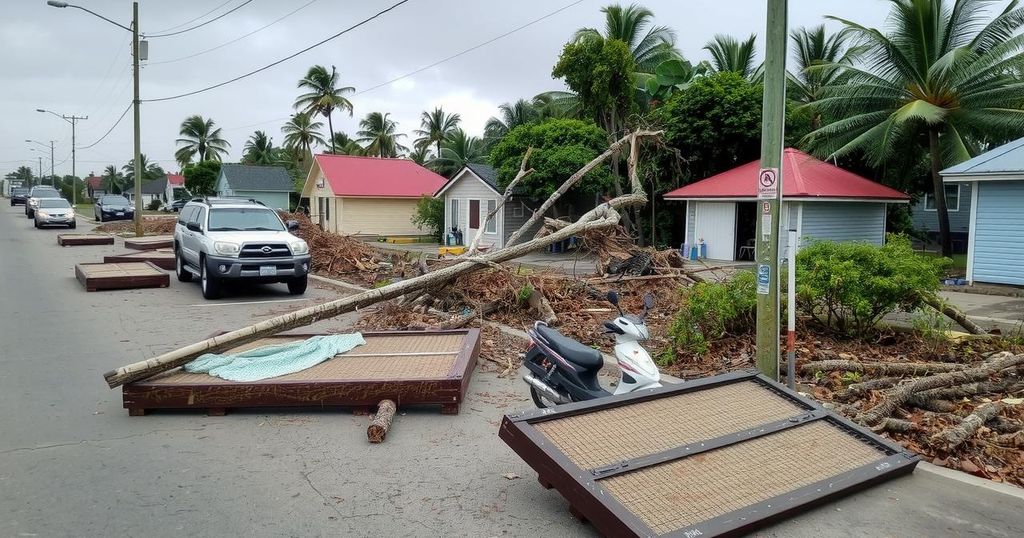Mayotte is in the midst of a rescue operation following the devastation caused by Cyclone Chido, which brought hurricane-force winds, severely damaging infrastructure and affecting the impoverished local population. Emergency supplies are being dispatched, and French military personnel are assisting with relief efforts. The cyclone’s impact represents the worst natural disaster in the region in over 90 years.
A significant rescue operation has commenced in Mayotte, a French island territory located off the southeastern coast of Africa, following Cyclone Chido, which has been described as the most devastating cyclone in the last nine decades. With wind speeds exceeding 140 mph (225 km/h), the cyclone has caused extensive destruction, demolishing numerous homes, power lines, roads, and key infrastructure such as the main airport and hospital. Those most affected are the impoverished residents, many of whom reside in inadequately constructed shelters that have been severely impacted by the cyclone’s forces.
Emergency supplies have begun to arrive, including materials for temporary shelters. However, many displaced individuals are facing dire shortages of food, water, electricity, and internet connectivity. The French military is providing critical assistance; over 100 soldiers have already been deployed, with an additional 160 en route to aid the suffering population.
Mayotte comprises two major islands, Grande-Terre and Petite-Terre, with a combined population of approximately 321,000. The cyclone has been classified by Meteo France as the most formidable storm to affect the region in over 90 years. While geographically distant from Paris, Mayotte remains a French territory and operates under the same legal framework as mainland France. In response to the crisis, French President Emmanuel Macron is expected to convene an emergency meeting. Authorities have also announced that relief supplies and essential equipment are being transported from Reunion Island, another French overseas territory.
Cyclones, akin to hurricanes and typhoons, are tropical storms differentiated by regional terminology. They typically originate over the South Pacific and Indian Oceans, with Mayotte’s cyclone season spanning from December to March.
Cyclone Chido’s destructive impact on Mayotte marks a significant humanitarian crisis for the island, which had not experienced such severe weather for nearly a century. The territory’s vulnerability is heightened by the socioeconomic conditions of many residents who inhabit poorly constructed housing that fails to withstand extreme weather. This incident underscores the importance of emergency preparedness and resilient infrastructure in areas prone to natural disasters. The French government’s immediate response highlights the challenges of remote territories in mobilizing adequate resources and support during crises, and the necessity for timely relief efforts to address urgent needs.
The aftermath of Cyclone Chido in Mayotte showcases a severe humanitarian crisis requiring immediate and coordinated rescue and relief operations. The destruction of infrastructure and homes has left many residents deprived of essential resources. Immediate military assistance from France and the promise of further supplies from Reunion Island will be crucial in alleviating the suffering of those affected. Continued monitoring of the situation and effective disaster response strategies will be vital in helping the island’s population recover from this catastrophic event.
Original Source: www.bbc.co.uk






